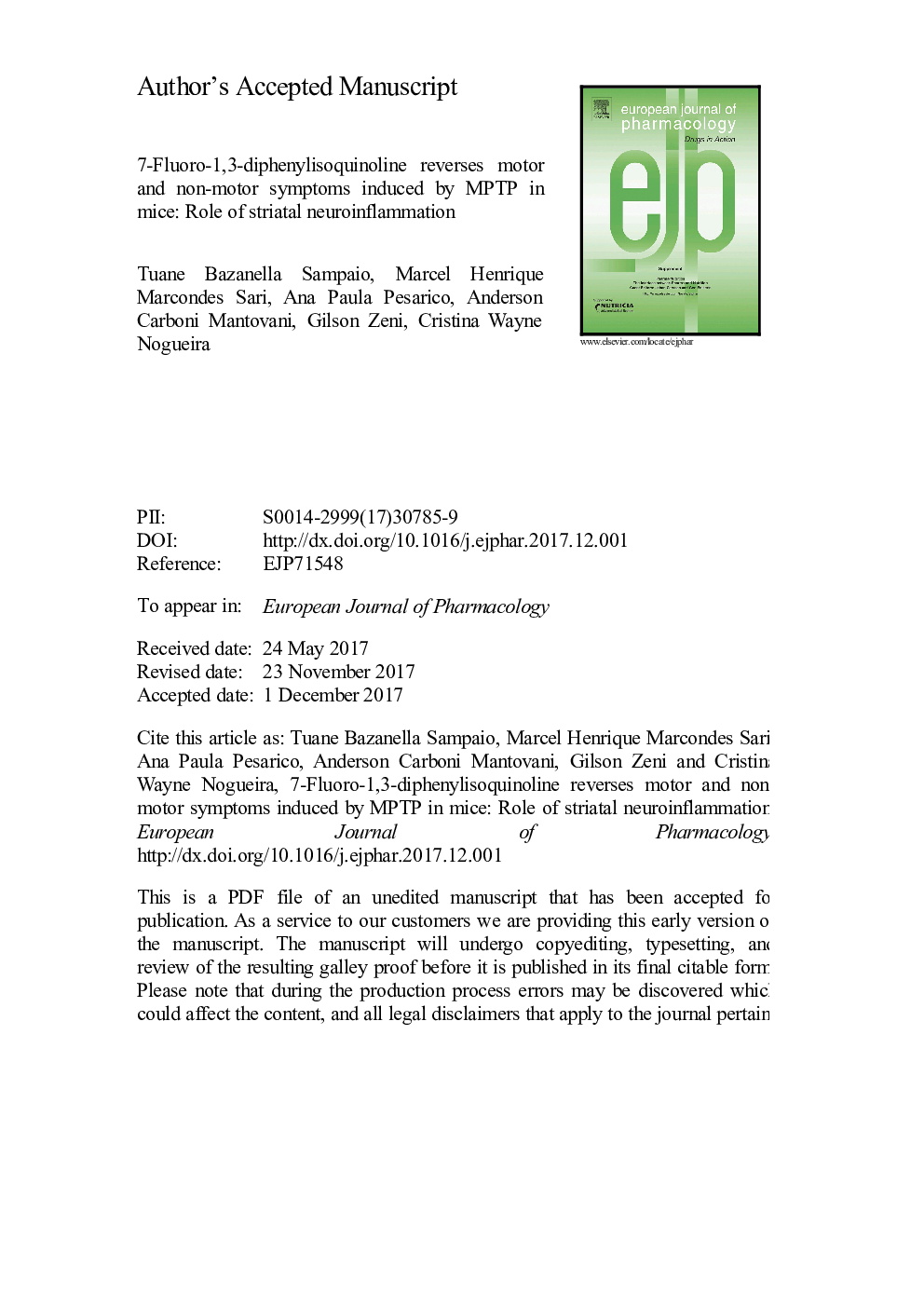| Article ID | Journal | Published Year | Pages | File Type |
|---|---|---|---|---|
| 8529623 | European Journal of Pharmacology | 2018 | 31 Pages |
Abstract
Parkinson's disease (PD) is a dopaminergic neurodegenerative disorder, which presents motor and non-motor symptoms. 7-Fluoro-1,3-diphenylisoquinoline (FDPI) is an isoquinoline compound with antioxidant and antidepressant properties. This study investigated whether FDPI reverses motor and non-motor symptoms in an acute mouse model of PD induced by 1-methyl-4-phenyl-1,2,3,6-tetrahydropyridine (MPTP). It was also assessed the anti-inflammatory mechanisms in FDPI pharmacological action. C57Bl/6 male adult mice received four MPTP (20Â mg/kg, intraperitoneal) or saline (vehicle) injections to induce an acute PD model. FDPI (10Â mg/kg, intragastric) was daily administered to mice from the 2nd to 9th day after the induction and mice performed the behavioral tests on the 8th and 9th days. Striatum samples were collected for biochemical and molecular analyses. The results of the rotarod and challenging beam tests demonstrated that the administration of FDPI attenuated the impairments in balance and coordination of mice induced by MPTP. The FDPI reversed the short-term memory deficit and depressive-like behavior induced by MPTP in mice. FDPI attenuated the reduction in the striatal tyrosine hydroxylase levels, and it reversed the increase in the cyclooxygenase-2 levels and myeloperoxidase activity caused by MPTP in mice. Therefore, FDPI reversed motor and non-motor symptoms induced by an acute PD model and its restorative effects seem to be mediated by an anti-inflammatory action associated with a modulation of the striatal cyclooxygenase-2 levels and myeloperoxidase activity.
Related Topics
Life Sciences
Neuroscience
Cellular and Molecular Neuroscience
Authors
Tuane Bazanella Sampaio, Marcel Henrique Marcondes Sari, Ana Paula Pesarico, Anderson Carboni Mantovani, Gilson Zeni, Cristina Wayne Nogueira,
